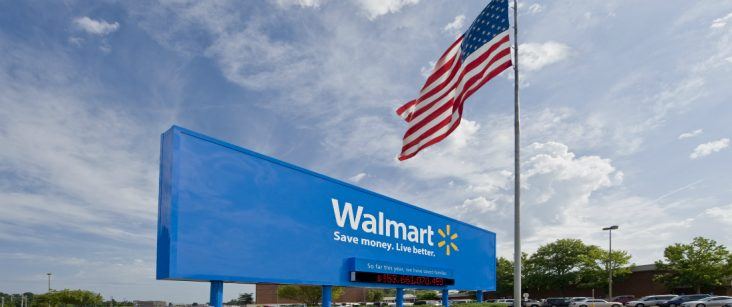Walmart sells majority stake in Brazilian business
by June 4, 2018 1:53 pm 910 views

Wal-Mart's corporate headquarters in Bentonville, Arkansas.
Walmart announced Monday (June 4) the pending sale of 80% of its business in Brazil to private equity investors Advent International. Walmart expects no ongoing material impact to earnings this fiscal year, and a slight positive impact next fiscal year.
The Bentonville-based global retailer continues to shake up its international portfolio, choosing to focus on Mexico, China and India, and holding minority position in Asda in the United Kingdom. Japan and South Africa are also smaller markets for the retail giant.
The move is not a surprise. In December 2016, Wal-Mart closed 60 of its weakest performing stores, which accounted for about 5% of sales in Brazil. As far back as 2015, analysts were predicting Wal-Mart would divest some of its assets in South America, namely Brazil.
Walmart opened stores in Brazil in 1995 and is the third largest supermarket group in the country with revenue of roughly $6.7 billion (U.S.). Walmart operates 438 stores in Brazil with 55,000 employees.
Walmart expects to record a non-cash, net loss of approximately $4.5 billion as a discrete item in the second quarter. A significant portion of the net loss is due to the recognition of cumulative foreign currency translation losses and the final loss could fluctuate based on currency exchange rate changes at the closing.
Competition and a tough economic environment have resulted in Brazil being a challenging market for Walmart. Walmart International CEO Judith McKenna was asked by the media during last week’s shareholder meetings about the company’s plans for stagnant growth countries like Japan and Brazil. She said there has been some turnaround in Japan and the company is pleased with the progress there. Without referencing Brazil, she said other markets were being reviewed for divestiture or partnerships.
Also, Brazil was not represented at Walmart’s recent shareholders meeting in Fayetteville. Talk Business & Politics was told the decision not to have employees from Brazil was based on costs and performance. In the first quarter of fiscal 2019, Brazil was the only one of 11 markets with negative comp (same-store) sales. Walmart Brazil has reported negative sales for the past seven years despite several management changes and investments to try and turn the business around.
Terms of the deal were not disclosed, but the transaction is expected to get regulatory approval in the next 60 days. Advent said it may hire a new CEO for Walmart Brazil and has no immediate plans to reduce the headcount in that market, nor close stores.
“We have been in Brazil for over 20 years and are excited about this partnership with one of the country’s leading retailers,” said Patrice Etlin, a managing partner at Advent International in Brazil. “We believe that with our local market knowledge and retail expertise we can position the company to generate significant results and reach new levels of success in Brazil. We plan to invest in the business, work with the Walmart Brazil management team, associates, Walmart and our industry advisors to create a more agile and modern company to accelerate its development and improve the customer experience.”
Enrique Ostalé, executive vice president and regional CEO of Walmart U.K., Latin America and Africa, said the retailer will continue to share its global retail expertise with its Brazilian partners to maximize the opportunity for long-term growth.
McKenna said the retailer will continue to seek partnerships. She said the sale of a majority stake in Asda to Sainsbury’s in the United Kingdom, and acquiring a 77% state in India-based Flipkart for $16 billion, are examples of how Walmart is managing challenging markets.
Clint Lazenby, co-founder of #OnShelf, said the move out of Brazil is more evidence the retailer is focused on e-commerce and omnichannel development in more lucrative markets.
“The divestiture of Brazil is another bold move by Walmart. It shows us how the company is agile and that following significant investments in both JD.com and Jet.com – both in terms of time and capital – they have been able to learn and adapt,” Lazenby told Talk Business & Politics. “It is clear they have committed to a future vision leveraging eCommerce and new partnership models to create value. Refocusing the portfolio is critical for them to optimize and push this strategy forward ensuring they are able to effectively contend with Alibaba and Amazon.”
Founded in 1984, Advent International has invested in more than 330 private equity transactions in 41 countries. As of Dec. 31, 2017, Advent had $42 billion in assets under management. Advent has offices in North America, Europe, Latin America and Asia.
The investment community largely supports Walmart thinning out its international portfolio and focusing on markets with growth potential. Walmart shares (NYSE: WMT) were priced around $85.18 in mid-afternoon trading, up more than 2.6%. Over the past 52 weeks the share price has ranged between $73.13 to $109.98.
